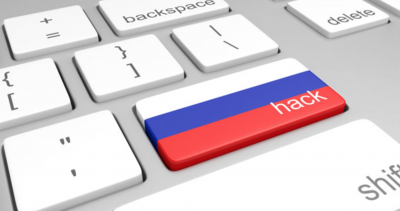How Serious Was Russia’s “Probing” of U.S. Election Systems?

NSA contractor Reality Winner allegedly leaked documents showing that Russia probed U.S. election systems days before the 2016 presidential election.
How big a crisis is this?
Washington’s Blog asked Bill Binney, the NSA executive who created the agency’s mass surveillance program for digital information, who served as the senior technical director within the agency, who managed six thousand NSA employees, the 36-year NSA veteran widely regarded as a “legend” within the agency and the NSA’s best-ever analyst and code-breaker, who mapped out the Soviet command-and-control structure before anyone else knew how, and so predicted Soviet invasions before they happened (“in the 1970s, he decrypted the Soviet Union’s command system, which provided the US and its allies with real-time surveillance of all Soviet troop movements and Russian atomic weapons”).

Bill Binney (Source: Wikipedia)
Binney told us:
If you think about this article [the story by the Intercept], and assume it’s true, then hacking a few days before the election is a little late if they really wanted to influence the voting.
To me, this sounds more like fishing for information to find out as much as they could about the democratic party much like the Chinese did hacking the OPM [U.S. Office of Personnel Management] files. I’m sure the Chinese found more use for the data they got then the Russians did on the Democratic party because Hillary did not win.
Former CIA officer Philip Giraldi agrees:
The Intercept article cites an unnamed intelligence official who “cautioned against drawing too big a conclusion from the document because a single analysis is not necessarily definitive.” To that I would add, “even if it is all true as described.”
And I would also make some additional observations about what the report and Intercept article are suggesting. First and foremost would be the questions of scale and timing.
There is no evidence that the Russians, or whoever carried out the probes, were able to tamper with either the actual voting process or the tabulation of votes. Indeed, the NSA report dismisses any such possibility. Second, corrupting an election in a country as large as the United States with an electoral system that is largely decentralized would require much more than a probe of 122 local officials starting a week before the balloting. So there was clearly no intention to disrupt the election or to tilt it in a certain direction based on the evidence provided by the NSA report.
I would also note that there is no proof provided in the report to support the assertion that the GRU, Russian military-intelligence service, carried out the probes. Would a highly-sophisticated intelligence service behave so transparently in an operation that would certainly be regarded as highly sensitive? I think not. Cut-outs would have been used to misdirect anyone looking to determine the hand behind the hacks.
All of which is not to say the Russian government didn’t do it or order it done, but it seems to me that the revelations provided in the NSA report do not go very far beyond the kind of random probings that are part and parcel of foreign-intelligence operations as carried out by any sophisticated service. Did someone in Moscow think it might be useful to have some kind of idea of how to meddle with U.S. election technology if that type of info might prove useful down the road? Quite possibly. It should be noted that the U.S. National Security Agency illegally collects vast quantities of information on ordinary Americans but that does not necessarily imply intent to use it in a malicious way. It is a desirable capability and intelligence agencies are always working to expand their reach.
So was Russian intelligence probing U.S. electoral systems? Quite plausibly yes, and it should be a matter of concern for every American as it suggests a vulnerability in the electronics behind how we vote. But did Russia actually interfere with the election or seek to use the probing to elect a particular candidate? The answer is clearly no. The article and the document it is based on should serve as a wake-up call to those who are complacent about the security of our technologies. But on a political level, we are back to square one, with often hysterical allegations surfaced as part of the media and political storm we now refer to as Russiagate.
(And even the U.S. Department of Homeland Security apparently probed U.S. election systems without permission in 2016.)
Indeed, it might be a little bit hypocritical for U.S. politicians to rail about Russian interference with our election when:
- The Washington Post says the U.S. tried to change other countries’ governments 72 times during the cold war
- The Los Angeles Times notes that the U.S. has interfered in other countries’ elections as many as 81 times
- This includes recent elections
- And as Time magazine notes, this includes the U.S. swaying Russia’s election of its top leader
Those who live in glass houses should probably not be throwing stones.
Featured image: Wccftech

